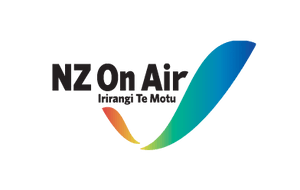Queenstown’s growth has rapidly inflated house prices and rent; incomes not so much. Queenstown Lakes Community Housing Trust executive officer Julie Scott says we need to start thinking differently about the Kiwi dream.
It’s worrying to hear the government state there’s no housing crisis in New Zealand. The 460 households on our waiting list disagree. These are low to moderate income workers with permanent residency or citizenship who are committed to the district. They are aspiring to put down roots here and meet all our basic eligibility criteria for housing assistance.
Over the last two years, we’ve seen a huge increase in the number of young families seeking the trust’s assistance. The list has doubled from where it was two years ago. Families with kids now make up 59% of those seeking assistance, 20% are couples with no kids, and the remaining 21% are single person households. No longer are people coming to us just wanting help to buy their first home. Now around half our waiting list comprises people seeking affordable and secure rental accommodation.
Click to watch Unsettled: Housing in Crisis, an interactive documentary on the housing crisis
A few opportunistic landlords have been increasing rents in unjustified escalations. Daily I hear stories of families being forced to leave their long term rental property after the rent has gone from $450 to $750 per week at their annual review. For a low income working family, these rents are simply not possible.
The property market has been booming, aided by sustained low interest rates and a “panic buying” mentality. Industry observers say the market is at the peak of the cycle now – I certainly hope so as Queenstown can’t withstand the phenomenal growth we’ve seen in the past two years for much longer. In 2015 you could buy an entry level home for around $500k. Now you’re looking at $800k for the same property. Unfortunately wages haven’t increased at nearly the same pace.
Queenstown’s infrastructure has failed to keep up with population growth as more workers pour into town to staff the numerous new businesses and growing local economy. However, we now have a dedicated council determined to strengthen our town’s infrastructure in order to satisfy resident and visitor growth. And we welcome the Government’s recent announcement to provide funding to our council for the specific purpose of infrastructure for new residential subdivisions.
And our Trust is fighting to support those local residents holding on to the Kiwi dream – not necessarily of home ownership, but of housing security. As part of the Queenstown Housing Accord, all Special Housing Area applicants are required to make a contribution to our trust for the purposes of community housing. This is part of a process called Inclusionary Zoning (IZ) whereby there’s a requirement for a portion of new land development to be retained as affordable housing. The theory behind IZ is that when land is upzoned (from rural to residential for example) it creates a huge uplift in value and that the community should share in the benefit of that uplift. IZ is the main source of funding for our trust, and a model which could be replicated in by other councils around the country.
The trust was established ten years ago with the purpose of delivering affordable housing solutions to residents of the district who are in need of housing assistance. To date we’ve assisted a total of 154 households with some form of assistance via our three main programmes.
Under Shared Ownership we act as a silent partner in the property. The trust is registered on the title owning anywhere between 15% and 40%. Progressively, the household is encouraged to buy the trust out in full or incrementally at current market value when in a position to do so. Our Rent Saver programme provides secure tenure for households along with an inbuilt savings incentive, so that over five years the household will have saved sufficient deposit to allow them to progress into a Shared Ownership property or independence. And the Affordable Rental scheme, which is geared at low income households with no deposit, sets rent based on the household’s income. Leases are for a maximum of five years during which time the household is expected to clear themselves of debt and establish savings to progress towards another of the trust’s programmes or independence.
As the property market changes, the trust must evolve in turn. Currently we’re working on a new ownership model which will provide long-term affordability and security of tenure to households on our waiting list. It is a move away from our traditional ownership programme and one which will retain the trust’s assets in perpetuity, whilst opening up housing options to many more people. The district needs this.
Affordable housing is dangerously out of reach for so many people, and this is starting to have a significant impact on families, and the city. Without the support of the trust, many of our local residents would not be able to stay in the district due to the unaffordable rental market. Many others would choose to leave due to the impossibility of owning their own home here. We need these people – teachers, nurses, police, social workers to name a few – they are the the glue that holds a community together.
Unsettled: Housing in Crisis was made possible with funding from New Zealand on Air. Click to begin the experience.




